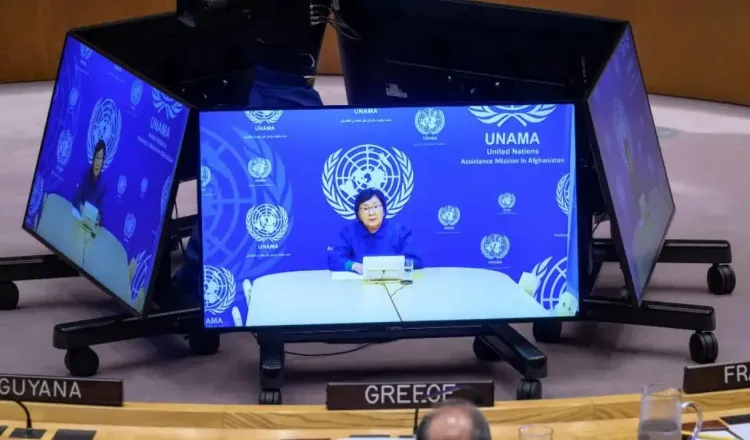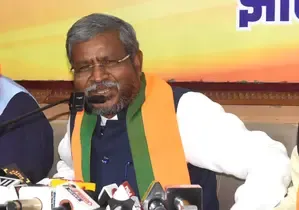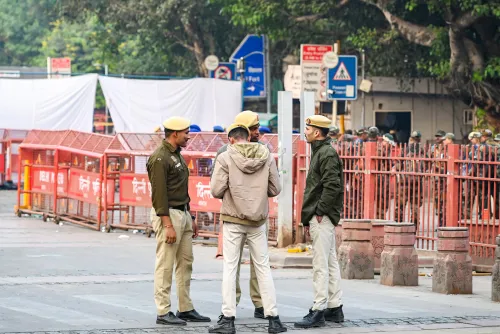Why is international engagement with Afghanistan crucial during this political crisis?

Synopsis
Key Takeaways
- International engagement is crucial for Afghanistan's recovery.
- The Taliban's restrictions are causing widespread discontent.
- Aid cuts are expected to reach 50% by 2025.
- Women and girls face significant challenges under current policies.
- The UN's Comprehensive Approach offers a pathway for collaboration.
United Nations, Sep 18 (NationPress) - The departing chief UN envoy in Afghanistan has emphasized the necessity for the global community to maintain its ties with the war-ravaged nation.
"As I prepare to depart Afghanistan in a few days, I am convinced that the majority of Afghans wish for continued interaction between the international community and their homeland, despite the challenges," stated Roza Otunbayeva, the UN secretary-general's special representative for Afghanistan, during her final briefing on Wednesday (local time).
"I genuinely hope that a consensus can be reached to allow this engagement to persist and begin producing more beneficial outcomes, particularly for women and girls in Afghanistan," she expressed to the Security Council as she concluded her tenure as special representative and head of the UN Assistance Mission in Afghanistan.
It remains uncertain whether the Taliban, as the current authorities, possess the necessary pragmatism to navigate the overwhelming crises confronting Afghanistan, or if ideologically driven decisions will hinder sustainable solutions, thereby prolonging the suffering of the Afghan people and jeopardizing existing stability, she indicated.
"We have observed evidence of both trends recently. Following the Kunar earthquake, the de facto authorities deployed helicopters to evacuate the injured, collaborated with international agencies and nations offering bilateral aid, established sites for internally displaced individuals, and otherwise addressed the immediate and medium-term needs of the affected communities," Otunbayeva noted.
"However, concurrently, as United Nations agencies intensified their support for earthquake victims while still providing aid for the returnee crisis, personnel from the de facto Ministry of Defence positioned themselves outside UN facilities in Kabul, obstructing access for our female national staff," she added.
This significant restriction hampers the UN's capacity to assist the Afghan populace at a time of critical need, she remarked.
Otunbayeva highlighted that Afghanistan is confronted with numerous and simultaneous crises: the Taliban's restrictions inciting public discontent, nearly a 50 percent reduction in international aid projected for 2025, a faltering economy, widespread poverty, an impending drought, and other climate-induced challenges, including natural disasters like the recent earthquake in eastern Afghanistan, alongside substantial population returns from neighboring countries, according to reports from Xinhua news agency.
She stressed that the UN Comprehensive Approach, which aims to sustain a fundamental international consensus on Afghanistan, serves as the sole multilateral framework for engagement between the global community and the Taliban. If advanced, it could enable the nation to achieve its full economic potential and cultivate its human capital, she concluded.









